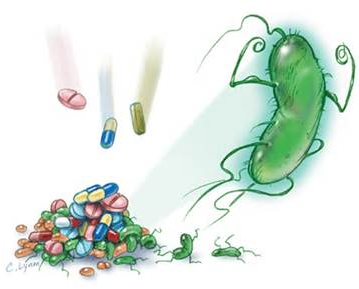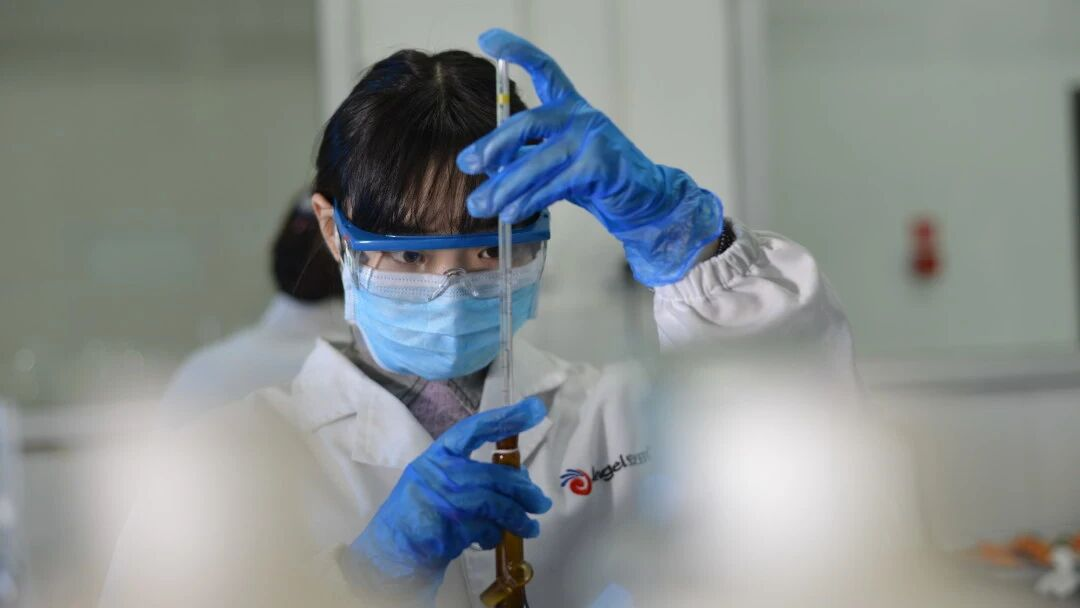揭示新型的细菌抗生素耐药性危机

在墨西哥人类使用的抗生素会被严格控制以免抗生素滥用引发的不良后果,但是在兽医部门使用的抗生素却没有得到有效控制,这就会引发常见的细菌,比如大肠杆菌、沙门氏菌等细菌对常见的抗生素产生耐药性,比如链霉素、甲氧嘧啶、氨苄西林和四环素等。
如果没有兽医的处方的话,抗生素滥用引发的问题看似很小,实际上其会导致服药动物机体肠道中的细菌经历一种选择性的压力,进而使其获得较强的耐药性,这对于畜牧业的发展将是致命性的灾难。
为了揭示细菌耐药性的起源,来自墨西哥国家自治大学的研究人员对来自动物体内的不同细菌种进行了分析,结果发现,细菌耐药性的产生是因为每一种抗生素的使用都会刺激细菌产生特殊的耐药性抗性基因来应对;这样研究人员就可以利用本文的研究结果来检测引发多种耐药性的遗传碎片(即整合子),由于这些遗传碎片插入到了基因中所以才会引发细菌产生耐药性,从而抑制抗细菌制剂的有效性。
研究者表示,细菌多种耐药性的产生往往是由于兽医对抗生素的销售没有得到很好的控制,漫无目的地滥用抗生素只会使得细菌产生获得性的耐受因子,从而免于被抗生素杀灭;大肠杆菌O157: H7型可以引发腹泻以及腹痛,在某些情况下甚至会引发肾脏和神经的综合症,包括溶血性尿毒综合征等症状。
最后研究者们表示,如果抗生素的使用得到了有效控制,那么细菌耐药性的产生速度将会减慢,当前世界范围内细菌耐药性的产生对人类的健康和经济带来了巨大损失,因此有效控制抗生素的使用以及开发新型抗生素或新型感染性疾病的靶向性疗法对于治疗感染性疾病的发生将是非常重要的。
英文原文报道:
In Mexico the sale of antibiotics for human consumption is controlled to prevent misuse, although in the veterinary sector failure in the implementation of the Official Mexican Standard NOM-064-ZOO-2000, "Guidelines for veterinarian products prescription," has prompted common bacteria such as Escherichia coli and Salmonella spp to become resistant to regular drugs such as streptomycin, trimethoprim, ampicillin, gentamicin, and tetracycline as a result of excess drug use.
The use of antibiotics without prescription for veterinary use is a problem that may seem minimal, but the importance is that each improper administration of these drugs, is conducive to bacteria normally present in the intestinal tract of animals are being subjected to a selective pressure, causing them to acquire different mechanisms for its survival.
In order to discover the origin of bacterial resistance, Martín Talavera Rojas, professor at the Centre for Research and Advanced Studies in Animal Health of the Autonomous University of the State of Mexico (UAEM), analyzed different isolates of bacteria from animals for human consumption and reports that such resistance is due to the presence of various resistance genes specific for each class of antibiotics.
The results of the studies were used to detect the presence of genetic fragments (integrons) that cause resistance to various antibiotics, due to the insertion of genes in these structures, which results in increased resistance and prevent income of bactericidal agents, said the scientists.
The cause of bacterial strains that have become more resistant to drugs is that there is not a controlled sale of antibiotics in veterinary and in using them indiscriminately causing bacteria acquire resistance factors that allow it to survive affecting food production.
UAEM researcher concluded that the damage caused by the infection "superbugs" such as Escherichia coli serovar O157: H7 causes bloody diarrhea, severe abdominal pain and in some cases can cause kidney and neurological complications, including uremic syndrome hemolytic; while Salmonella causes bleeding blood and fever.
Talavera Rojas said the isolates of Salmonella spp where resistant to various antibiotics and integrons were present in 40 percent of the isolates (31/77). Afterwards the bacteria were subjected to trimethoprim-sulfa antibiotics, tetracycline, ampicillin, and streptomycin, to check resistance to these drugs.

专业提供微生物发酵 酵母浸出物(浸膏、浸粉)酵母粉 蛋白胨等新型氮源及复合培养基




